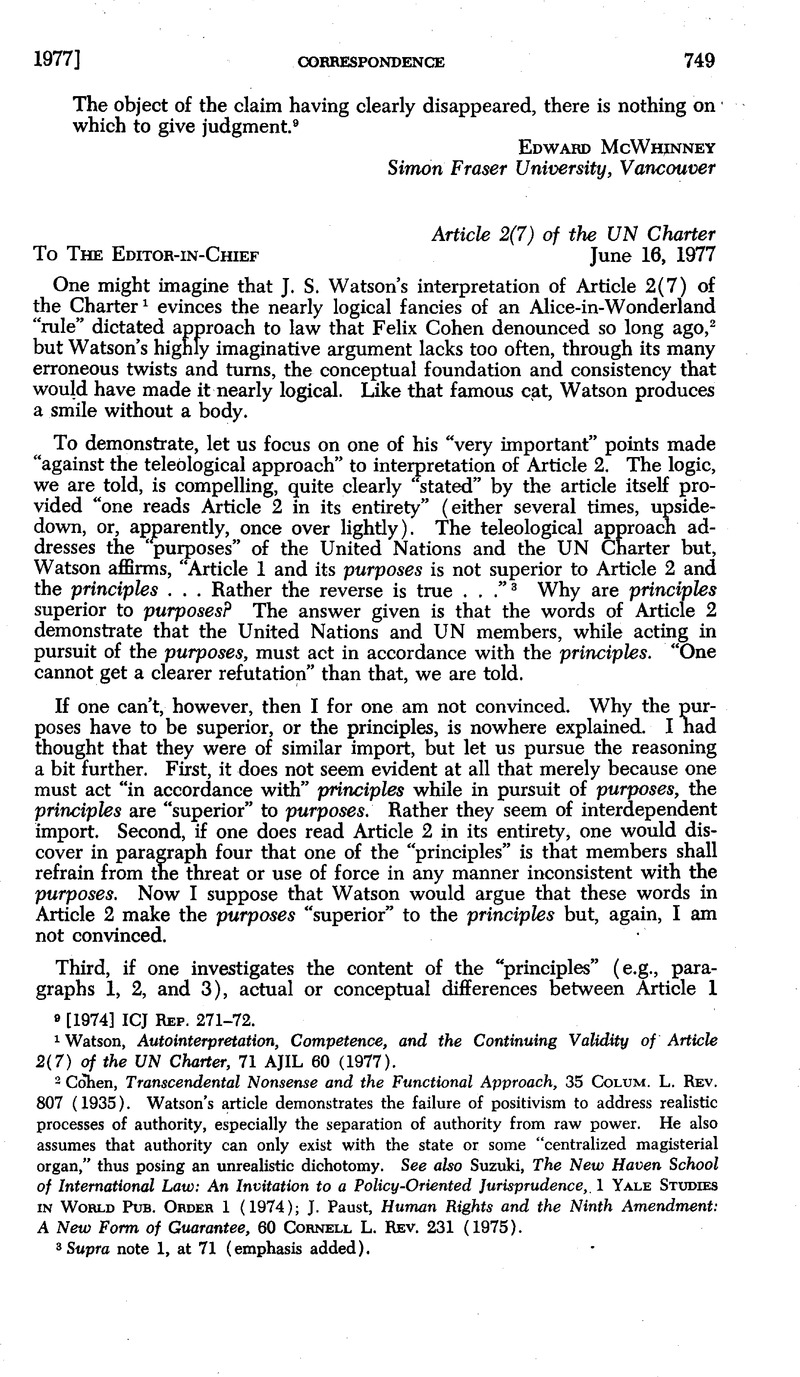No CrossRef data available.
Article contents
Abstract

- Type
- Correspondence
- Information
- Copyright
- Copyright © American Society of International Law 1977
References
1 Watson, , Autointerpretation, Competence, and the Continuing Validity of Article 2(7) of the UN Charter, 71 AJIL 60 (1977)CrossRefGoogle Scholar.
2 Cohen, Transcendental Nonsense and the Functional Approach,35 colum. l. rev. 807 (1935). Watson's article demonstrates the failure of positivism to address realistic processes of authority, especially the separation of authority from raw power. He also assumes that authority can only exist with the state or some “centralized magisterial organ,” thus posing an unrealistic dichotomy. See also Suzuki, , The New Haven School of International Law: An Invitation to a Policy-Oriented Jurisprudence, 1 yale studies in world pub. ohdeb 1 (1974)Google Scholar; Paust, J., Human Rights and the Ninth Amendment: A New Form of Guarantee, 60 cornell l. rev. 231 (1975).Google Scholar
3 Supra note 1, at 71 (emphasis added).
4 SeePaust, supranote 2, at 236.
5 See Paust, &Blaustein, , The Arab Oil Weapon—A Threat to International Peace, 68 AJIL 410, 423 n.58 (1974)CrossRefGoogle Scholar; and Paust, J., letter, 71 AJIL 508 (July 1977)CrossRefGoogle Scholar. We term initial state decisions “provisional characterizations.” SeeM. mcdougaL&F. feliciano, law and minimum world public order 218-19 (1961).
6 Supranote 1, at 72 (“completely accurate“); cf. id.at 71.
7 Id.One conveniently deleted pre-Charter case, for example, declares: “The question whether a certain matter is or is not solely within the jurisdiction of a State is an essentially relative question: it depends upon the development of international relations.” The oft-cited case is the Advisory Opinion on Nationality Decrees issued in Tunis and Morocco, [1923] PCIJ, ser. B, No. 4 (1923). Further, the analysis at supranote 1, at 63 is unconvincing and ignores Articles 25, 33(2), 34, 39, and others. See also id.at 65 (“cannot bind a member“) and 66 (“neither is the Security Council except for its decisions under Chapter VII“). Watson's approach to state “practice” is also incomplete, rather like focusing on law violatorsas law creators and ignoring more widespread patterns of compliant and norm-creating practice and perspective. See also supranote 1, at 65 (“target states“) and 70 (South Africa); cf. id.at 76 (an apt criticism of “simplistic” approaches to custom).


